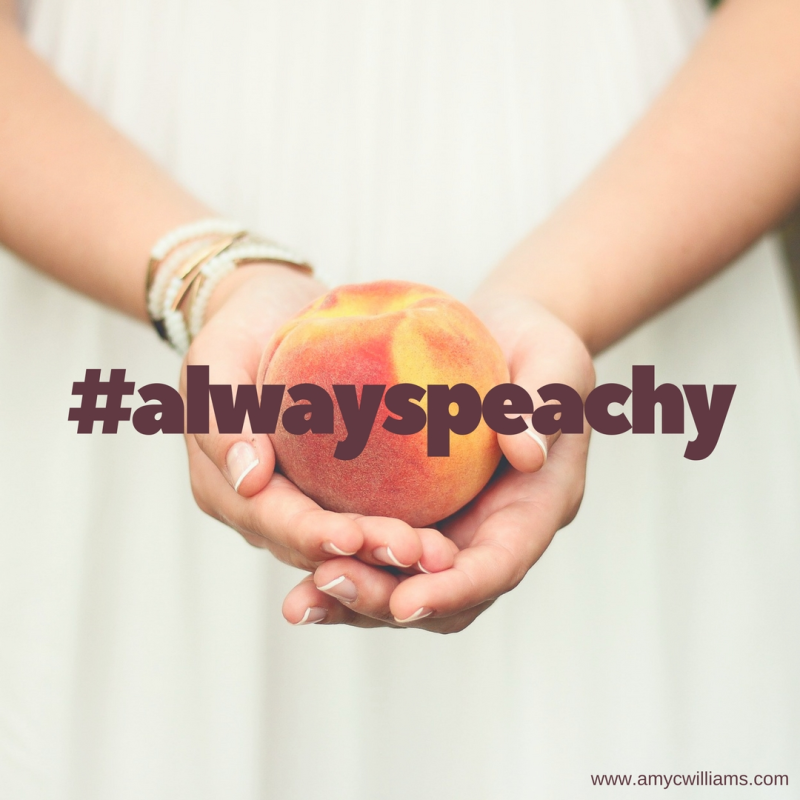What does grace look like? No, not a dancer. Not your friend named Grace. God’s grace, the gift He offers to us freely that forgives us from our sins and provides us with a second chance after we fail (Ephesians 2:8-9).
Grace, in a religious context, is always about God’s unmerited favor. It’s God giving us something we don’t deserve, something we could never earn or ever repay. Grace is even a cute churchy acronym: God’s Riches At Christ’s Expense. Nice. Sweet. Easy to remember. But what does it mean? What does it look like?
Maybe I’m too practical, but while the cute little mnemonics are nice for memory, what good will they do if I don’t know how to apply them? If grace is essential to following Jesus, I should know how to use it.
So many times, I think grace and forgiveness and trust all get muddled together, as though they’re synonymous, and nothing is further from the truth. Rather, they’re all part of a process that’s connected to following Jesus. But if you do all three at once, you’ll end up back where you started.
Grace is for our enemies
God demonstrated grace for us when He sacrificed Jesus to save us while we were His enemies (Colossians 1:21-22). Did you realize that? We hadn’t done anything good enough to deserve Jesus’ blood. We can’t ever do anything worth His sacrifice. That’s what makes it grace. That’s what makes it a gift. It’s undeserved.
 That’s the picture of grace we’re supposed to use. Grace is loving people who don’t deserve your love. It’s showing compassion and mercy and kindness to people who have done absolutely nothing compassionate, merciful, or kind for you. Maybe they’ve even done the opposite. Maybe they’ve hurt you, lied about you, gossiped about you, but no matter what they’ve done to you, it doesn’t mean you can’t love them (Matthew 5:44).
That’s the picture of grace we’re supposed to use. Grace is loving people who don’t deserve your love. It’s showing compassion and mercy and kindness to people who have done absolutely nothing compassionate, merciful, or kind for you. Maybe they’ve even done the opposite. Maybe they’ve hurt you, lied about you, gossiped about you, but no matter what they’ve done to you, it doesn’t mean you can’t love them (Matthew 5:44).
No, you can’t love them in your own strength. The only way you can love people who’ve hurt you or betrayed you is with Jesus’ strength. Practically that’s going to look different in every situation. In some cases, loving someone means speaking kindly to them or about them. In some cases, loving someone will mean stepping away from them, getting out of their lives and letting them face the consequences of their actions without you there to soften the blow. But one aspect of loving someone remains constant: Forgiveness.
Forgiveness is hard
There’s something in our natures that wants to cling to old wounds—or even to new wounds. We think that holding on them will make us stronger somehow, that rehashing every cruel word or deed will provide us with wisdom to face the same situation again. My dear friends, that’s a lie. Going over those hurtful memories constantly doesn’t make you stronger. It only makes the tear in your heart wider and harder to heal. And maybe it will harden you, thicken your skin so that you can withstand future hurts, but you won’t be withstanding them with God’s power. And your power will ultimately fail.
Let it go.

Pry your fingers off those old wounds. Stop digging into them. And let God work. Recognize that whoever hurt you is imperfect, just like you. And maybe they’re wrong, maybe the enemy is using them as a sledgehammer to bludgeon you, maybe they need to face consequences for what they’ve done. But that’s not your job (Romans 12:19). Your job is to forgive. To take those hurtful words, that painful situation, that horrible memory and stop holding it against them.
I know. It’s impossible. But only if you try to do it alone. God has promised that He will give us strength to do impossible things (Philippians 4:13). Once you throw off the heavy burden of all that pain and grief and sorrow, you’ll truly be free.
But what does it look like?
Because if you forgive someone, doesn’t that mean they’ll hurt you again? Doesn’t that mean they’ll just repeat what they did before? Or maybe they won’t even stop. Maybe they’ll see it as a sign of weakness.
 This is where Christians get so messed up. Forgiveness isn’t restoration. Forgiveness is choosing (sometimes daily, sometimes hourly) not to hold past sins against another person. But restoration is trust, and once trust has been broken, it must be earned back. The Bible tells us to offer forgiveness freely but to trust cautiously (Proverbs 4:23). Don’t just hand over what’s valuable to someone who will misuse it; you’re asking for trouble if you do (Matthew 7:6).
This is where Christians get so messed up. Forgiveness isn’t restoration. Forgiveness is choosing (sometimes daily, sometimes hourly) not to hold past sins against another person. But restoration is trust, and once trust has been broken, it must be earned back. The Bible tells us to offer forgiveness freely but to trust cautiously (Proverbs 4:23). Don’t just hand over what’s valuable to someone who will misuse it; you’re asking for trouble if you do (Matthew 7:6).
Be careful with people who have hurt you. They’ve done it once, and they may do it again. So think long and hard before you let them back into your life. That’s trust. That’s restoration. That’s wisdom. But that doesn’t mean you haven’t forgiven them.
Forgiveness means taking the hurt and the pain and the memory of what they did or said and turning it over to God. Stop turning it over in your mind. It’s not helping you. Capture each one of those damaging thoughts and choose to forgive. Move on. God’s got it. He knows the truth, and He’ll deal with each of us in His own time.
Live Jesus’ love
Regardless, extend grace to everyone (Romans 12:17-21), no matter who they are or what they’ve done. Always be kind. Always be truthful. Always think the best of others. Always help others. And don’t do it because you want to make them feel ashamed. Don’t do it out of some passive aggressive tendency to make them pay. Do it because you love them. Do it because that’s the way you’d want to be treated. Do it because tomorrow, you may be the one who has hurt someone else.
Following Jesus isn’t about you. It’s about Him.









 The problem I usually have (when I’m not flying on an airplane) is that I skip ahead to step two without doing step one. I tend to want to take care of everyone around me first before seeing to my own needs. I want to help people, and I don’t want myself to get in the way. But it’s too much for one person to do alone, and I exhaust myself. (
The problem I usually have (when I’m not flying on an airplane) is that I skip ahead to step two without doing step one. I tend to want to take care of everyone around me first before seeing to my own needs. I want to help people, and I don’t want myself to get in the way. But it’s too much for one person to do alone, and I exhaust myself. ( I’m talking to myself here. I run myself ragged for the benefit of others. I wear myself down and work my immune system to its lowest point for the sake of those around me. It’s how I’m wired. But I need to start looking at taking care of people as a two-step process.
I’m talking to myself here. I run myself ragged for the benefit of others. I wear myself down and work my immune system to its lowest point for the sake of those around me. It’s how I’m wired. But I need to start looking at taking care of people as a two-step process. Our perspective is the problem
Our perspective is the problem That lady in the pew next to you is part of your world. The distracted driver on the road behind you is part of your world. The screaming child in the grocery store with his or her frazzled mother or father is part of your world. The grumpy teenager, the struggling elder, the blustering politician are all part of your world.
That lady in the pew next to you is part of your world. The distracted driver on the road behind you is part of your world. The screaming child in the grocery store with his or her frazzled mother or father is part of your world. The grumpy teenager, the struggling elder, the blustering politician are all part of your world.